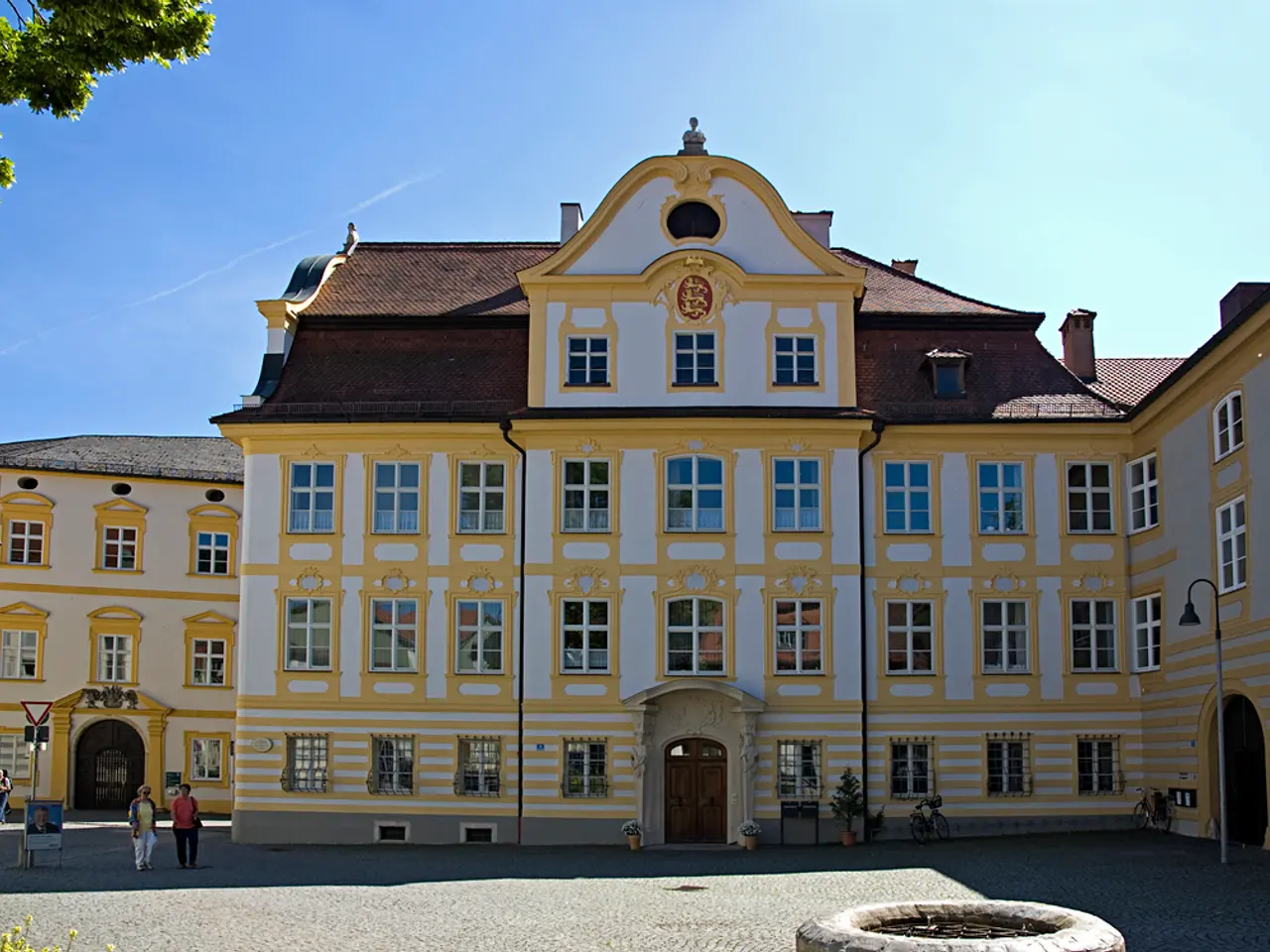Government Representation by PEC during the Autumn Budget Discussion
## Boosting the Creative Sector: UK Government's Proactive Policy Approach
The UK government has taken a proactive stance to stimulate growth in the creative sector, recognising its significant contribution to the economy and potential for innovation-led recovery. The Creative Industries Sector Plan, launched in June 2025, serves as the cornerstone of this strategy, placing the sector at the heart of the country's industrial strategy and economic future.
### Innovation-Led Recovery
The government aims to accelerate innovation-led growth by increasing investment in research and development (R&D) within the creative industries. This includes support for new technologies such as AI and extended reality, and efforts to encourage the creation and commercialization of creative intellectual property. The goal is to make the UK the "number one destination worldwide for investment in creativity and innovation," with a target to nearly double business investment in the sector from £17 billion to £31 billion by 2035.
### UK-Wide Investment and Regional Growth
The plan is designed to be UK-wide, with investment and support reaching all regions, not just London and the South East. The government is leveraging institutions like the British Business Bank and expert intermediaries to improve access to finance for creative businesses across the country. Key investment strategies include expanding growth finance for creative start-ups and scale-ups, encouraging international and domestic investment in creative hubs throughout the UK, and boosting exports and trade in creative goods and services.
### Creative Workforce: Skills, Diversity, and Freelancers
The government's strategy emphasises building a resilient, skilled, and diverse workforce. The sector's reliance on both domestic and international talent is recognised, with 16% of the creative workforce being migrants—higher than the national average—and a marked increase in visas for creative workers since 2021. Key workforce initiatives include raising the minimum skill threshold for the Skilled Worker immigration route, tailored support for freelancers, focusing on skills development and productivity, and promoting diversity within the creative professions.
The creative industries, which include sectors such as film, fashion, video games, and performing arts, have grown twice as fast as the rest of the UK economy in the past decade. The Creative Industries Policy and Evidence Centre, an organisation that provides independent research and policy recommendations for the UK's creative industries, has submitted responses to various government inquiries, including the DCMS Committee's 'Cultural Placemaking and the Levelling Up Agenda'.
Industry stakeholders emphasise that effective implementation—requiring cross-departmental coordination and strong regional partnerships—will be crucial to realising the plan's ambitions. The UK government's current stance is boldly pro-growth, prioritising innovation, nationwide investment, and a skilled, diverse workforce to secure the UK’s position as a global leader in the creative industries.
- The UK government aims to make the United Kingdom the prime destination globally for investment in creativity and innovation, with a goal to almost double business investment in the creative sector from £17 billion to £31 billion by 2035.
- The Creative Industries Sector Plan, launched in June 2025, is the cornerstone of the UK government's strategy to boost the creative sector, positioning it at the heart of the country's industrial strategy and economic aspirations.
- The strategy focuses on increasing investment in research and development (R&D) within the creative industries, supporting new technologies like AI and extended reality, and promoting the creation and commercialization of creative intellectual property.
- The government's plan is designed to reach all regions of the UK, not just London and the South East, with efforts to improve access to finance for creative businesses across the country.
- The creative workforce is a key focus, with initiatives aimed at building a resilient, skilled, and diverse workforce, recognizing the sector's reliance on both domestic and international talent.
- The Creative Industries Policy and Evidence Centre provides independent research and policy recommendations for the UK's creative industries, offering insights on matters like cultural placemaking and the Levelling Up Agenda.
- Effective implementation of the plan will require cross-departmental coordination and strong regional partnerships, as acknowledged by industry stakeholders.
- The UK government's proactive approach prioritizes innovation, nationwide investment, and a skilled, diverse workforce to ensure the UK's position as a global leader in the creative industries, part of a broader spectrum spanning policy-and-legislation, politics, general news, education, arts, and multiple industries.





